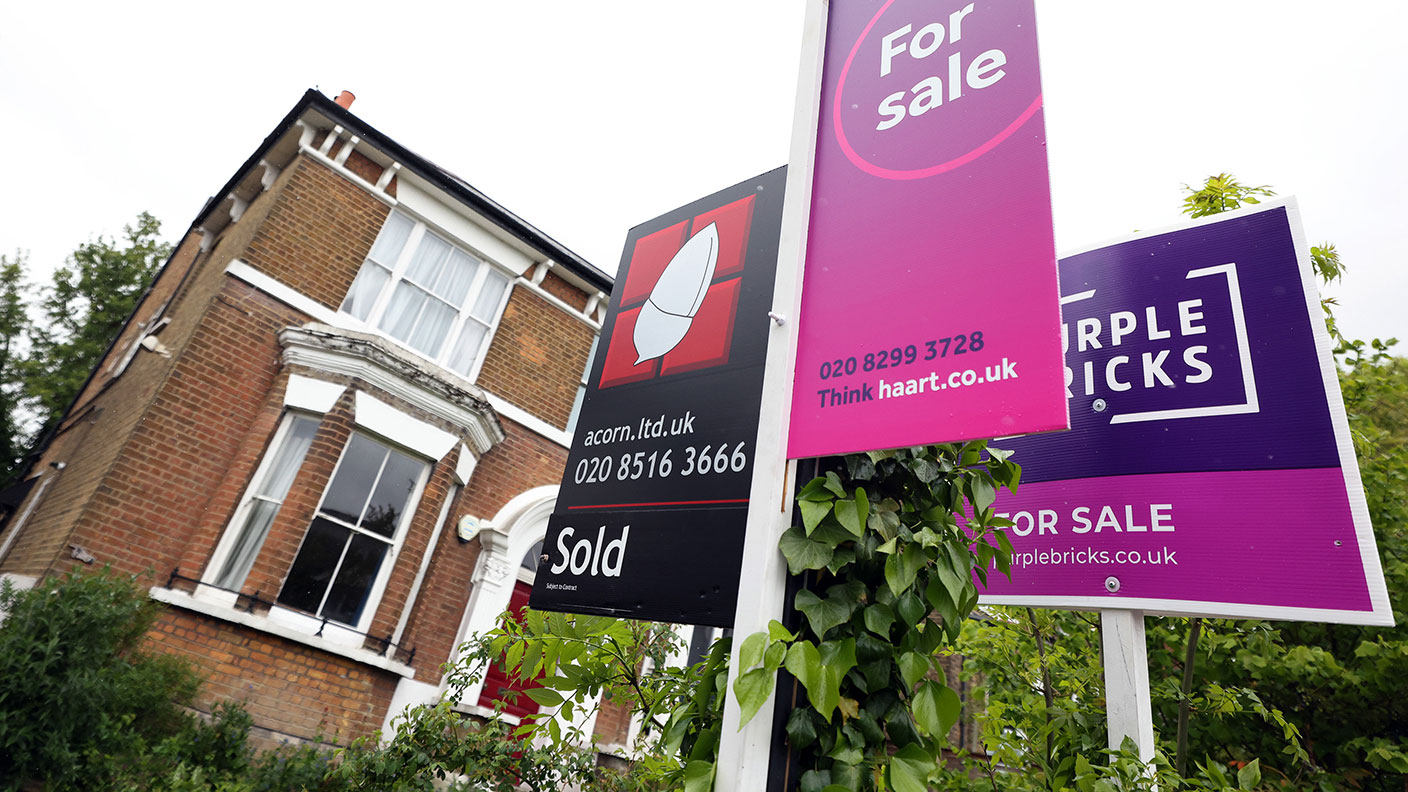House prices to jump by almost 25% over the next five years, says Savills
The estate agency says prices will rise by £84,000 by 2029 as the housing market stabilises after the ill-fated 2022 mini-Budget


Get the latest financial news, insights and expert analysis from our award-winning MoneyWeek team, to help you understand what really matters when it comes to your finances.
You are now subscribed
Your newsletter sign-up was successful
Want to add more newsletters?

Twice daily
MoneyWeek
Get the latest financial news, insights and expert analysis from our award-winning MoneyWeek team, to help you understand what really matters when it comes to your finances.

Four times a week
Look After My Bills
Sign up to our free money-saving newsletter, filled with the latest news and expert advice to help you find the best tips and deals for managing your bills. Start saving today!
House prices in the UK will increase by almost a quarter by 2029 as a result of lower mortgage rates, according to Savills.
The estate agency says prices will jump 23.4 per cent, or by £84,000, over the next five years as the housing market stabilises after the ill-fated 2022 mini-Budget.
“With less external noise, house prices in the medium term will be dictated by the fundamentals of demand, supply and affordability,” Lucian Cook, head of residential research at Savills, says.
MoneyWeek
Subscribe to MoneyWeek today and get your first six magazine issues absolutely FREE

Sign up to Money Morning
Don't miss the latest investment and personal finances news, market analysis, plus money-saving tips with our free twice-daily newsletter
Don't miss the latest investment and personal finances news, market analysis, plus money-saving tips with our free twice-daily newsletter
The findings come after uncertainty ahead of last month’s Budget saw asking prices for homes in the UK rise by much less than expected in October.
According to data from property website Rightmove, asking prices increased by just 0.3% in October, well below the 1.3% average for the month.
Cook, however, believes the worst is over for the housing market.
He says: “A steady improvement in affordability should allow for house-price growth to gain momentum over the next couple of years. But there is still some potential for a bumpy ride.
“The market will remain sensitive to short-term fluctuations in the cost of debt. [but] the direction of mortgage rates has been key to buyer decisions over the past two years, and decreased monthly mortgage costs are now feeding through into improved confidence amongst prospective buyers.”
Savills says markets in the north, where mortgaged buyers are under less strain, will have the strongest acceleration in growth of between 28 and 29 per cent by 2029.
What is happening with house prices?
House prices rose by 1.5% in August, bringing the annual growth rate to 2.8%, according to official figures.
The average price of a property in the UK now sits at £293,000, an £8,000 uplift compared to a year ago.
The Land Registry index, which differs from the way the likes of Savills and Rightmove calculate prices, shows that annual house price inflation was highest in the North West, where prices increased by 4.6% in the 12 months to August. The South West had the lowest annual inflation of all regions in England, with prices rising by just 0.8%.
Jeremy Leaf, estate agent and a former RICS residential chairman, says: “This most comprehensive of all house-price surveys, as it includes cash and mortgage transactions, demonstrates once again considerable market strength despite reflecting activity over the past three months at a time of economic and political turbulence.
Where have house prices risen the most?
The official house price index from the Land Registry and the Office for National Statistics reveals that of the four UK regions, values rose the fastest in Northern Ireland.
Average house prices in Northern Ireland jumped 6.4% over the past year to reach £185,000. This was followed by 5.4% growth in Scotland, with the average property now costing £200,000. In Wales, house prices rose 3.5% to reach £223,000. Meanwhile, in England prices increased 2.3% to £310,000.
In terms of English regions, the North West saw the fastest annual house price growth (4.6%), followed by Yorkshire and the Humber (4.4%), and then the West Midlands (2.6%).
The slowest house price inflation was seen in the South West (0.8%), followed by London at 1.4%. The average home in the capital now costs £531,212.
Get the latest financial news, insights and expert analysis from our award-winning MoneyWeek team, to help you understand what really matters when it comes to your finances.
Chris is a freelance journalist, and was previously an editor and correspondent at the Financial Times as well as the business and money editor at The i Newspaper. He is also the author of the Virgin Money Maker, the personal finance guide published by Virgin Books, and has written for the BBC, The Wall Street Journal, The Independent, South China Morning Post, TimeOut, Barron's and The Guardian. He is a graduate in Economics.
-
 Should you buy an active ETF?
Should you buy an active ETF?ETFs are often mischaracterised as passive products, but they can be a convenient way to add active management to your portfolio
-
 Power up your pension before 5 April – easy ways to save before the tax year end
Power up your pension before 5 April – easy ways to save before the tax year endWith the end of the tax year looming, pension savers currently have a window to review and maximise what’s going into their retirement funds – we look at how
